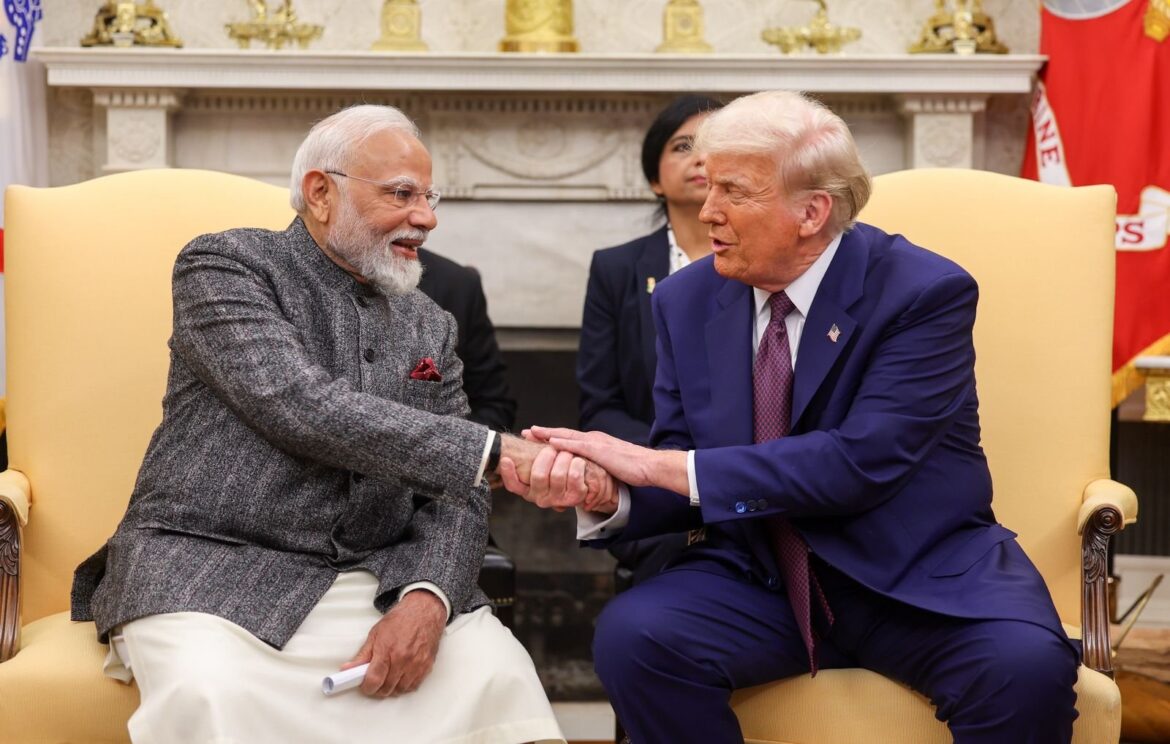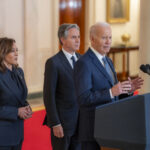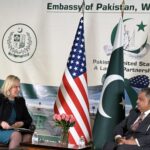Amid sustained diplomatic pressure and intervention from the United States, India and Pakistan have agreed to a ceasefire following several days of escalating cross-border military exchanges that began on May 7, 2025.
U.S. President Donald Trump announced the ceasefire on Truth Social, stating, “After a long night of talks mediated by the United States, I am pleased to announce that India and Pakistan have agreed to a ‘FULL AND IMMEDIATE CEASEFIRE.’” He congratulated both countries on using “Common Sense and Great Intelligence.”
U.S. Secretary of State Marco Rubio echoed the announcement, saying, “I am pleased to announce the Governments of India and Pakistan have agreed to an immediate ceasefire and to start talks on a broad set of issues at a neutral site.” He praised Prime Ministers Narendra Modi and Shehbaz Sharif for their “wisdom, prudence, and statesmanship in choosing the path of peace.”
Rubio noted that over the past 48 hours, he and Vice President JD Vance had been in direct communication with top Indian and Pakistani officials, including Prime Ministers Modi and Sharif, Foreign Minister S. Jaishankar, Pakistan’s Chief of Army Staff General Asim Munir, and National Security Advisors Ajit Doval and Asim Malik.
The agreement was formally reached on May 10 during a conversation between the Directors General of Military Operations (DGMOs) of both nations.
At a press briefing, India’s Foreign Secretary Vikram Misri said, “The Director General of military operations of Pakistan called the Director General of military operations of India at 1535 hours this afternoon. It was agreed between them that both sides would stop all firing and military action on land, in the air, and at sea, with effect from 1700 hours Indian Standard Time today.”
He confirmed that instructions had been issued to operational units on both sides to implement the agreement, and the DGMOs will reconvene for further dialogue on May 12 at 1200 hours.
Following Misri’s announcement, Commodore Raghu Nair reiterated the Indian Armed Forces’ commitment to the ceasefire, emphasizing that the Army, Navy, and Air Force would fully adhere to the agreement.
“There’s an understanding that has been reached to stop all military activities at sea, in the air, and on land,” Nair said. “Our responses since the tragic events at Pahalgam have been measured and very responsible. Details of these have already been shared through our press briefings over the past few days.”
The conflict was sparked by a deadly terrorist attack in Pahalgam, Kashmir, on April 22, in which 27 civilians, 26 Indian nationals and one Nepali tourist, all Hindu men were killed. The attack triggered a chain of retaliatory military operations, including a large-scale offensive known as Operation Sindoor. The ceasefire agreement now brings a pause to weeks of hostilities that had threatened to destabilize the broader South Asian region.
Addressing misinformation, Colonel Sofiya Qureshi and Wing Commander Vyomika Singh strongly denied circulating claims that Indian military assets had been compromised. They dismissed as “completely false” rumors that India’s S-400 missile system was destroyed by a JF-17, or that BrahMos installations and key airfields in Srinagar, Jammu, Pathankot, Bhuj, and Naliya had been damaged. They also presented visual evidence in earlier briefings confirming the operational status of forward ammunition depots in Chandigarh and Bhatinda.
Wing Commander Singh emphasized the Indian Armed Forces’ adherence to constitutional values. She said “Let us make this very clear here: India is a secular nation, and the Indian armed forces are a reflection of our constitutional values. We hold every place of worship of all faiths in the highest regard,” adding “Our operations have been aimed exclusively at terrorist camps and facilities being used for anti-India activities. No religious sites have been targeted by the Indian Armed Forces.”
Commodore Nair concluded the press conference by reaffirming India’s position: “Let me reiterate that whilst we will be adhering to the understanding that has been reached today — that is, the Indian Army, the Indian Navy, and the Indian Air Force — we remain fully prepared, ever vigilant, and committed to defending the sovereignty and integrity of the motherland.”
Every misadventure by Pakistan, according to him, has been met with strength, and every future escalation will invite a decisive response. “We remain fully operationally ready to launch whatever operations may be required in defense of the nation,” he added.
India’s Foreign Minister S. Jaishankar, in a post on X, wrote, “India and Pakistan have today worked out an understanding on stoppage of firing and military action. India has consistently maintained a firm and uncompromising stance against terrorism in all its forms and manifestations. It will continue to do so.”
Pakistan’s Foreign Minister Ishaq Dar also confirmed the development, stating, “Pakistan and India have agreed to a ceasefire with immediate effect. Pakistan has always strived for peace and security in the region, without compromising on its sovereignty and territorial integrity.”
The ceasefire announcement comes as Pakistan secured a $1.4 billion loan from the International Monetary Fund under its Resilience and Sustainability Facility, signaling broader efforts to stabilize the country’s economy amid the geopolitical crisis.






